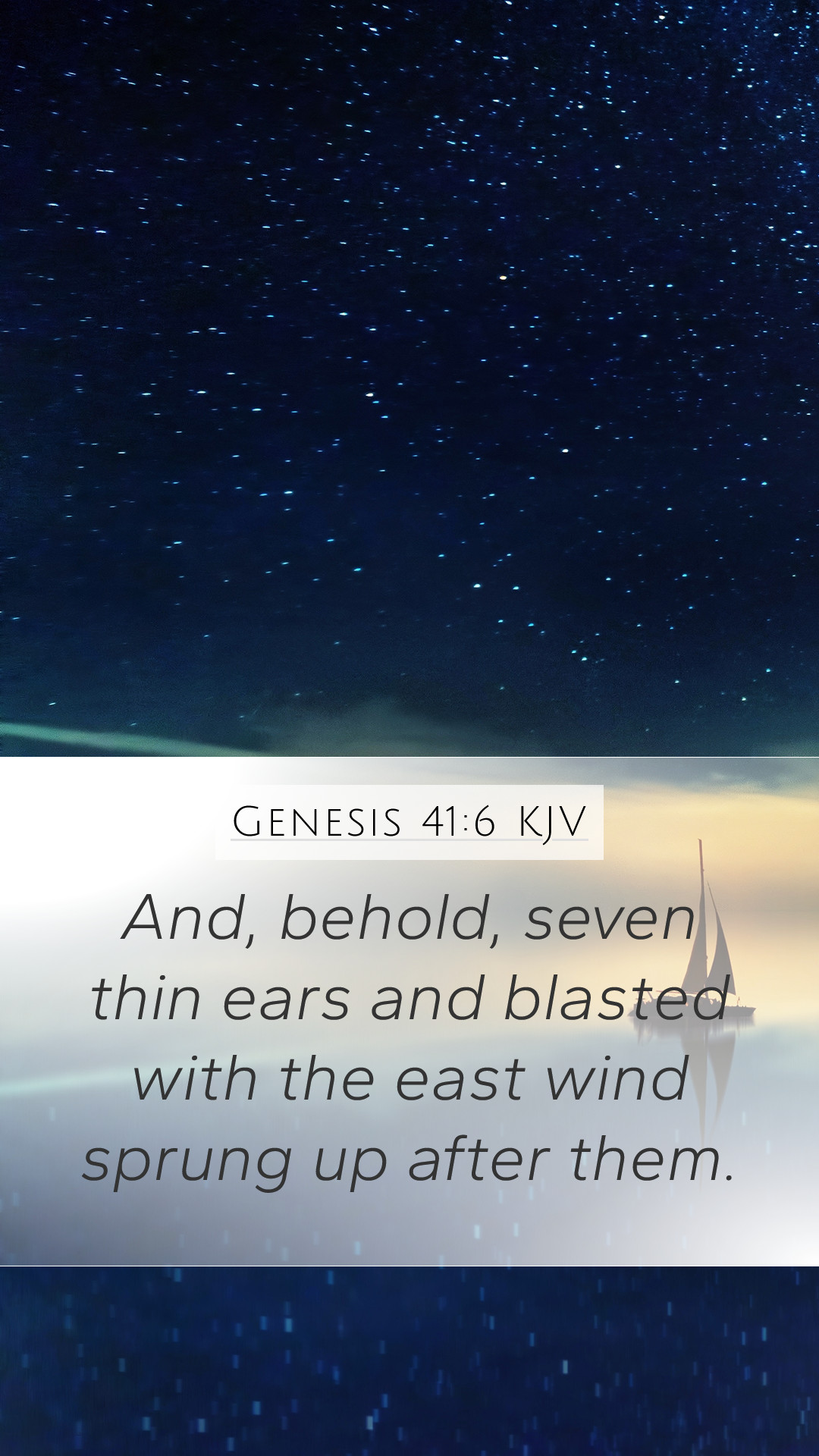Understanding Genesis 41:6
Genesis 41:6 states:
"And, behold, seven thin ears and blasted with the east wind sprung up after them."
This verse is part of the account of Joseph's interpretation of Pharaoh's dreams, specifically concerning the significance of the seven thin ears of corn that follow the healthy ones. In order to understand this verse and its implications, we will explore insights from esteemed public domain commentaries, including those by Matthew Henry, Albert Barnes, and Adam Clarke.
Overview of Genesis 41
The context of Genesis 41 encompasses Pharaoh's troubling dreams that require interpretation, which ultimately leads to Joseph's rise to power in Egypt. The imagery in the dreams reflects a coming famine following seven years of abundance.
Commentary Insights
-
Matthew Henry's Commentary:
Henry emphasizes the symbolic meaning behind the ears of corn, interpreting the seven thin ears as a representation of the impending famine. He suggests that this dramatic imagery serves to highlight the stark contrast between abundance and scarcity, warning both Pharaoh and the people of Egypt of the need to prepare.
-
Albert Barnes’ Notes:
Barnes explains that the thin ears, which were blasted by the east wind, symbolize not only physical famine but also moral decay. The east wind is often associated with destruction in the Bible, hinting at the totality of the devastation that would come upon the land, affecting not only the crops but the very fabric of society.
-
Adam Clarke's Commentary:
Clarke delves deeper into the agricultural implications of the dreams, noting that the thin ears represent a failure in productivity and nourishment. He emphasizes the importance of recognizing how quickly abundance can be transformed into scarcity and how critical it is to heed divine warnings.
Thematic Elements
The themes surrounding Genesis 41:6 incorporate divine revelation, preparation for future hardship, and the need for wise leadership. The narrative stresses the significance of interpreting dreams and signs as a means of gaining foresight and wisdom for upcoming challenges.
Applications of Genesis 41:6
From this verse, modern readers can draw several applications:
-
Preparation for Challenges:
Just as Pharaoh needed to prepare for the famine, individuals and communities are encouraged to plan and prepare for potential difficulties in their lives. This verse calls for prudence in financial and personal matters.
-
Moral Vigilance:
The reference to the east wind acts as a caution to remain vigilant against potential moral and spiritual decay, suggesting the need for continual self-assessment and community support.
-
Listening to Warnings:
This passage encourages individuals to take warnings seriously, understanding that divine communication may come in various forms, and demands a response to ensure one's welfare.
Cross References
Related scriptures that enhance the understanding of Genesis 41:6 include:
- Genesis 41:1-4: The dreams of Pharaoh that set the stage for Joseph's interpretation.
- Genesis 41:25-30: Joseph's interpretation of the dreams which explains the symbolism of abundance and famine.
- Proverbs 21:5: A reflection on the importance of planning and diligence.
Conclusion
Genesis 41:6 serves as a vital reminder of the need for understanding the premonitions of our circumstances, whether through spiritual, personal, or communal lenses. This comprehensive examination, drawing from notable biblical commentaries, provides a well-rounded perspective for those delving into the depth of Scripture.


